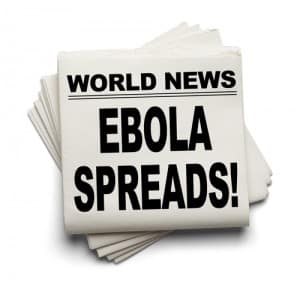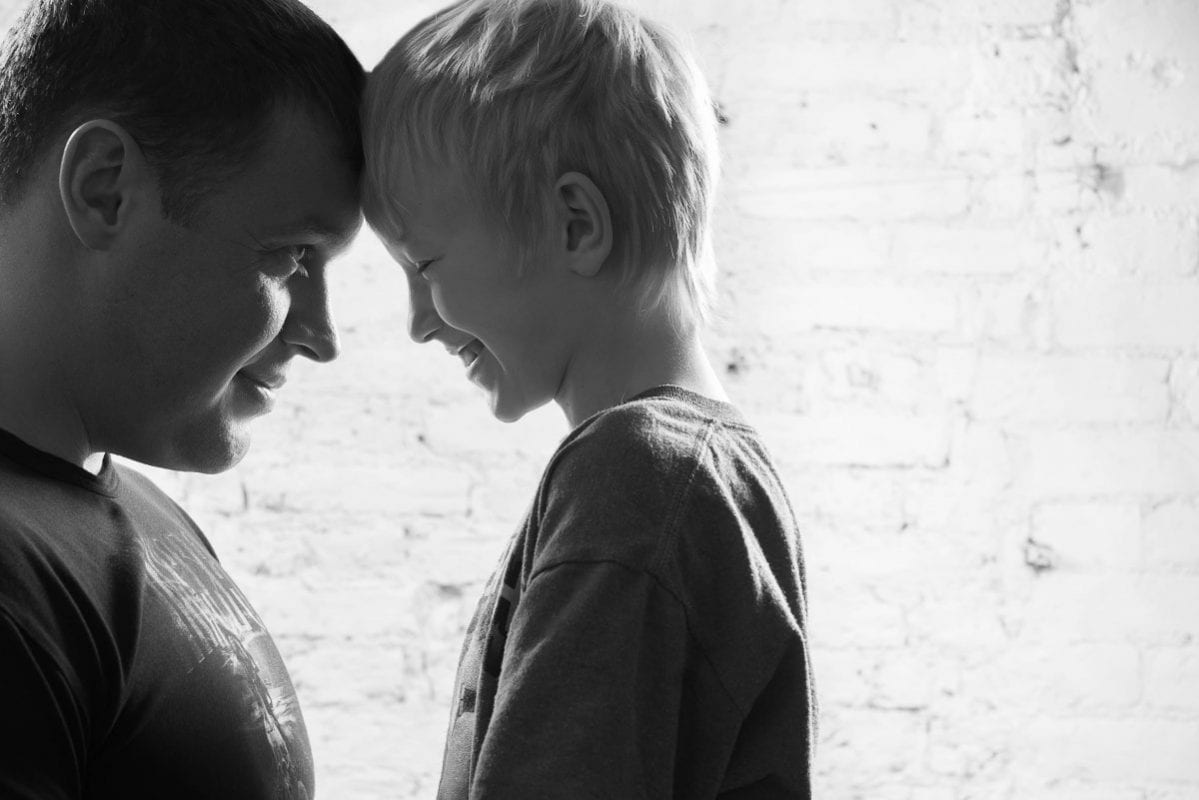Talking to kids about Ebola: does it seem counterintuitive? Do you worry that rather than calming their fears, talking about the disease will only frighten them more? Is it difficult for you to talk about something that actually scares you at least as much as it scares your children?
If so, you may want to consider that while Ebola is something no one wants to get, there have only been four cases in the United States and only one of them proved fatal. After successfully treating the other three, doctors seem clear that supportive therapies seem to do the trick of getting Ebola patients over the hump and on the way back to a complete recovery. Supportive therapies include giving fluids, making sure the patients have enough oxygen, keeping blood pressure steady, and treating any secondary infections as they arise.
Two of the three patients that recovered from Ebola in the United States did receive an experimental agent to help fight the disease, but no one seems clear that the drug did anything much at all. Instead it seems that standard medical care, which is not easily available in places like America, makes all the difference. Lucky for us, in the United States, supportive therapies for illness are par for the course.
Once one takes in this point, it becomes easier to say that the media is making a fuss for the simple reason that more than anything, Ebola means stories and headlines. Knowing this can make it easier for parents to calm down and breathe. And once you can breathe, you can feel more confident talking to kids about Ebola, even when those kids are your own.
Talking to Kids About Ebola:
Fear Of The Unknown—Fear is fed by ignorance: by not having the facts at your disposal. Don’t you feel better knowing that the patients with Ebola who were cured responded to simple measure like having their vital signs monitored and getting enough fluids? By the same token, your kids should respond well to the facts. Their fear is mostly because of the viral quality of the buzz about Ebola and because no one is telling them anything.
So here’s where you come in as a parent. It’s natural to want to protect your child from frightening topics. But it’s even more important to use knowledge to counter those frightening thoughts. This gives children something logical to work with: facts they can grasp. This is what they need to resolve their fears and it’s up to you to make that happen. Here’s how:
Probability And Distance—Little kids generally aren’t statisticians. But they do understand the general underlying principles regarding risk. Nigeria is far away. Three out of four of the unfortunate Americans who contracted the disease were health care workers who came into direct contact with Ebola patients outside of the United States. The fourth had traveled to the U.S. from Liberia. He had been in direct contact with a pregnant woman who died of Ebola in far away Liberia. To get Ebola, a person has to be in contact with someone who has the disease. Ebola isn’t random. Nobody in your child’s social circles has Ebola. No one in his home has Ebola. No one at the supermarket or at the mall has Ebola. And the world is taking precautions that things stay that way.
Media Versus The Truth—Are you addicted to the news? If so, your child may be hearing more about Ebola than the situation warrants. It’s important to explain to your child how the media operates. The media takes advantage of excitement. If people are scared of Ebola, the media will want to air stories on the subject. People are seeking information to calm their fears. So on the one hand, the media can give information that can calm fears. But on the other hand, the media may play up scary situations to keep people interested in the news. Watch the news together. Ask your child if he thinks the newscasters are doing a good job of relating the facts or if they are exaggerating the facts to get more people to watch the news. Point out telltale signs of media embellishment: a long pause, an emphasis on a word, a lifted eyebrow, or perhaps a misleading headline.
Level Of Distress—How worried is your child about Ebola? Has he initiated a discussion on the topic several times? Is he having nightmares about getting sick, or about you, his parents, getting sick? It’s a bad idea to take a wait and see approach. If your child is distressed and worried, that fear is only going to get worse until you sit down and talk things out, calmly and with facts.
Fear Of Flying—Your family was supposed to fly out to see the relatives in a different city, but as the trip draws closer, your child seems tense and worried. If you’ve been listening to the news, your child has heard about Ebola and flying in news reports and may have very well come to the not unreasonable conclusion that flying causes Ebola. It is important to talk to your child about how Ebola is contracted from people and not from flying. The airports are being careful about cleanliness and about screening people who are traveling from countries where there is Ebola. Reassure your child that if flying were a cause of Ebola, you would certainly NOT be taking him on an airplane to see Grandpa.
Fear Of Fear Itself—Okay, so you freaked out and your child saw you. You got a bit frightened by those news reports yourself. You’ll confess it. So now that you’ve gotten over it, how do you handle your child’s fear which was inflamed by your own? By talking about it in a truthful way. Kids are awesome about do-overs: “I was scared when I first heard about Ebola, it’s true. But now that I know the facts, I know there’s no reason for me to be worried. I have no risk factors and neither do you or anyone else we know.”
Explain to your child what risk factors are and remind your child of the risk factors for Ebola. In talking about and describing the risk factors for Ebola, you prove to your child that the danger of contracting Ebola is just about nil. Look your child in the eye so he knows you’re being straight. And when you’re done, go for a walk, share some ice cream, and talk about something fun!
Life’s too short to waste it worrying about things that are unlikely to come close enough to affect you or your loved ones.
